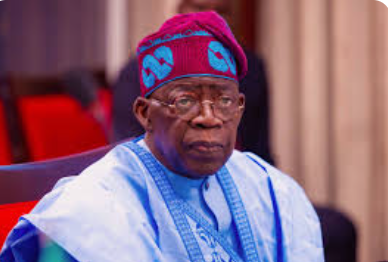Featured
Summary of President Tinubu’s Address on Recent Protests in Nigeria

In a heartfelt address to the nation, the President of Nigeria expressed deep concern over the recent violent protests that have erupted across several states. The President’s speech highlighted the pain and loss experienced due to the turmoil and called for unity and dialogue to address the nation’s challenges.
Key Points from the Address:
- Condemnation of Violence: The President condemned the violent protests, particularly emphasizing the loss of lives in Borno, Jigawa, Kano, and Kaduna. He noted the destruction of public facilities and the looting of supermarkets and shops, actions that contradicted the protest organizers’ promises of peaceful demonstrations. The President stressed that these destructive acts would require the use of scarce resources for restoration, setting the nation back.
- Call for Dialogue: Urging protesters and organizers to suspend further demonstrations, the President advocated for dialogue as a means to resolve issues. He emphasized the need for all Nigerians, regardless of age, party, tribe, or religion, to work together in reshaping the nation’s destiny.
- Government’s Commitment to Order: The President reaffirmed his commitment to maintaining public order and protecting the lives and property of every citizen. He warned those exploiting the situation for political gain or promoting ethnic bigotry that the law would hold them accountable.
- Economic Reforms: Highlighting the economic reforms undertaken by his administration, the President discussed the removal of fuel subsidies and the abolition of multiple foreign exchange systems. These measures aimed to eliminate profiteering by smugglers and rent-seekers and address long-term economic mismanagement. He assured the nation of his focus on delivering good governance.
- Achievements and Future Plans: The President detailed the significant strides made in rebuilding the economy, including doubling aggregate government revenues and increasing productivity in the non-oil sector. He also mentioned the reduction of debt service from 97% to 68% of revenue and the clearance of outstanding foreign exchange obligations without adverse impacts on government programs.
- Infrastructure and Social Initiatives: The address highlighted ongoing infrastructure projects, such as the Lagos-Calabar Coastal Highway and Sokoto-Badagry Highway, which aim to create jobs and boost economic output. Additionally, the President discussed the Compressed Natural Gas Initiative (CNG) to reduce transportation costs and curb inflation, as well as the student loan scheme and consumer credit corporation to ease financial burdens on citizens.
- Youth Empowerment: The President emphasized the administration’s commitment to empowering the youth through various programs, including the Digital and Creative Enterprises (IDiCE) and the Skill-Up Artisans Programme (SUPA). He also announced additional funding for student loans and credit corporations.
- Agricultural and Housing Initiatives: The speech included plans to increase food production by removing tariffs on essential agricultural imports and incentivizing farmers. The President also mentioned the Renewed Hope City and Estate housing projects aimed at providing affordable homes and stimulating economic growth.
- Call for Unity and Hope: Addressing the nation’s youth, the President acknowledged their frustrations and assured them of the government’s commitment to addressing their concerns. He called for unity, urging Nigerians to choose hope over fear and progress over stagnation. The President concluded with a reaffirmation of his dedication to improving the nation’s infrastructure and expanding opportunities for all citizens.












